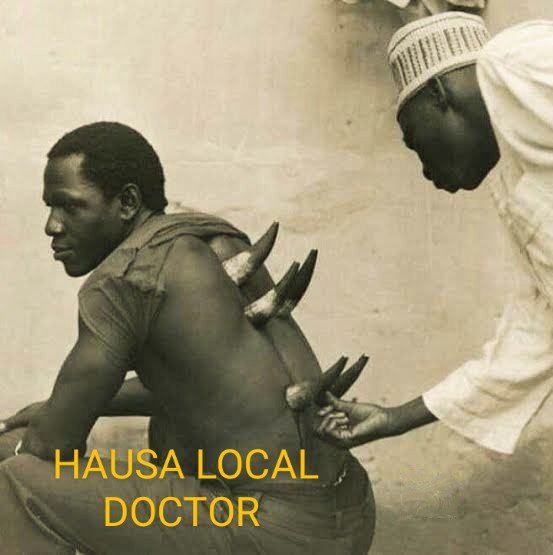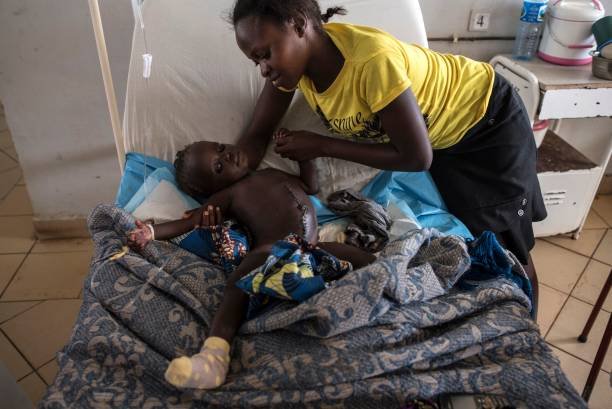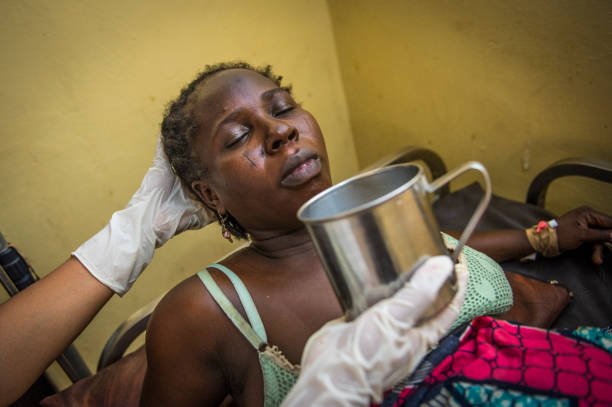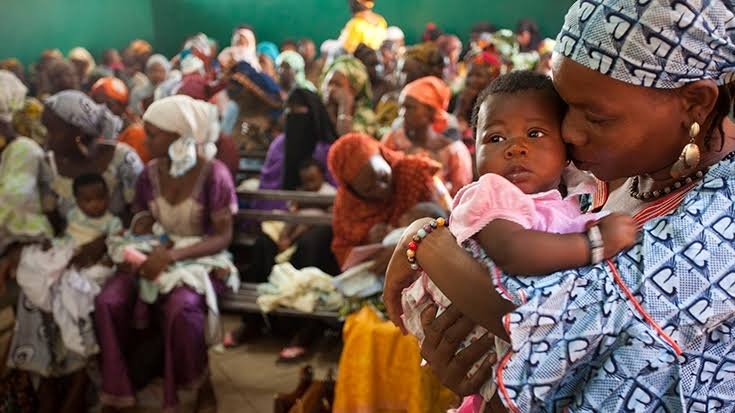In 1960, Nigeria became an independent country. It was a proud moment for everyone. But today, it is sad and surprising to see that the northern part of Nigeria, which often produces the country's leaders, is still one of the poorest regions in Africa. People there suffer so much because they don’t have enough money, good healthcare, or proper education.
The leaders in the northern region have not done enough to help their people live better lives. Instead, they focus on their own selfish goals, like winning elections or promoting certain religious beliefs. They allow poverty to spread so they can control the people more easily.

Instead of building schools, hospitals, or creating jobs, these leaders let their people suffer. Many of them encourage begging, asking poor people to come to their houses for food instead of empowering them to make money on their own. This has caused a lot of pain and hardship, especially in healthcare.
The Healthcare Crisis in Northern Nigeria
For example, in villages around Damaturu and Maiduguri, life is very hard. In about 90% of these villages, women give birth at home because there are no hospitals nearby. Families rely on herbal medicine because they cannot access modern healthcare.
Clean water is another major problem. Since there are no proper water systems, people have to fetch water from rivers, even though the water is dirty and unsafe. This makes many of them sick. The struggle for survival in these villages is constant, with people trapped in poverty and pain.
The healthcare system is in terrible shape. In some cases, 15 or even 20 villages share just one hospital. This hospital is usually far away in a big town. Families have to walk for hours or travel many kilometers to get there. When they arrive, they might find the hospital overcrowded, with not enough doctors, nurses, or medicines to help everyone.
The Impact of Poor Healthcare
This situation has made life unbearable for people in northern villages. Poverty is everywhere. Families struggle every day to find food, water, and care for their loved ones. Mothers, children, and the elderly suffer the most. Many die from illnesses that could have been treated if proper healthcare was available.
Common Healthcare Problems in Northern Villages
- No Nearby Hospitals – Many villages do not have hospitals, and people have to travel long distances to find one.
- Not Enough Doctors and Nurses – There are very few trained health workers to care for the sick.
- Poor Medical Facilities – The few hospitals that exist don’t have enough equipment, medicines, or proper amenities.
- Unsafe Water Sources – Dirty water causes diseases that could be avoided with clean drinking water.
- High Maternal and Infant Deaths – Many women give birth at home without proper medical help.
- Overcrowded Hospitals – When hospitals are available, they serve too many people, causing long waits and inadequate care.
- Dependence on Herbal Medicine – Without modern healthcare, people turn to traditional remedies that are not always safe or effective.





All images credit
How to Improve Healthcare in Northern Nigeria
To make healthcare better in the northern rural areas of Nigeria, the leaders and governors of these states need to care more about the people living there. They must be serious and intentional about helping their communities with healthcare and other basic needs. Right now, it feels like many of these leaders are not doing their jobs. They seem to ignore their responsibilities and leave the people poor, sick, and uneducated.
This is unfair because every person has a right to good healthcare, clean water, and a chance to live a healthy life. It is part of what democracy means: the leaders must take care of their people. But instead, some leaders seem to keep the people struggling so that they cannot fight for their rights or speak out against unfair treatment.
Let’s take Lagos State as an example. In Lagos, many people are educated, and the government cares about them. The governor there has worked hard to provide good healthcare services. For example:
There are primary healthcare centers and general hospitals in almost every part of Lagos.
Hospitals are close to where people live, so they don’t have to travel far to get medical help.
Private hospitals are also allowed to work freely, making it easier for more people to get treated.
Because of these efforts, at least 60% of the healthcare system in Lagos is working well. This shows that when leaders care about their people, they can create systems that help everyone live better lives.
The governors in northern Nigeria can learn from Lagos State. They have enough money from the federal government to build hospitals, hire doctors, and improve healthcare in their states. They just need to focus on their people and use the money wisely. If they do this, they can make sure that no one in their communities has to suffer from sickness or lack of medical care ever again.
It’s not just about building hospitals; it’s about showing the people that their lives matter and that their leaders are there to serve them. This is how we can bring real change and help the northern rural areas of Nigeria grow stronger and healthier.
Here are 10 ways to make the healthcare system better in villages and rural areas:
- Build More Health Centers – Governors should build small hospitals in villages so people don’t have to travel far for care.
- Hire and Train More Health Workers – Train more doctors, nurses, and health workers and encourage them to stay in rural areas by offering better pay and housing.
- Provide Free or Cheap Healthcare – Make healthcare free or affordable for poor families, especially for pregnant women and children.
- Supply Hospitals with Medicines and Equipment – Ensure all health centers have enough medicine, tools, and equipment to treat patients.
- Improve Water and Sanitation – Build clean water systems and proper toilets to reduce diseases caused by dirty water.
- Create Mobile Clinics – Use vans and mobile teams to visit remote villages regularly for vaccinations and check-ups.
- Teach Villagers About Health – Educate people on hygiene, preventing diseases, and the importance of seeking medical care early.
- Work with NGOs – Partner with organizations that can provide funds, medical supplies, and training for health workers.
- Provide Ambulances – Make sure every village has access to an ambulance or motorbike for emergencies.
- Monitor Healthcare Progress – Regularly check how health centers are performing and fix any problems quickly.
Conclusion
In conclusion, making healthcare better in northern Nigeria is not impossible. We need leaders who care about their people and are ready to act. Look at Lagos State—good leadership has improved healthcare there. Why can’t the same happen in northern Nigeria? Everyone, no matter where they live, deserves to be healthy and happy.
It’s time for us to speak up! Do you think leaders in the north can do better? How can we all help them make a change? Share your ideas in the comments. Let’s work together to build a future where no one suffers because of poor healthcare. Upvote this article if you agree, and let’s talk about how we can help!

